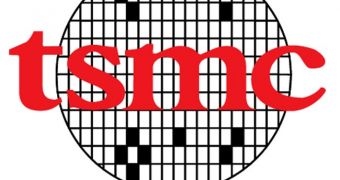Taiwanese semiconductor manufacturer Taiwan Semiconductor Manufacturing Company has just unveiled world's first 40-nanometer manufacturing process node for ultra-high end chip designs. This new manufacturing process is called a "half-node" and is an intermediate service towards the upcoming 32-nanometer manufacturing process.
According to the company, the first wafers of 40-nanometer semiconductors will show up during the next three months. TSMC claims that it has managed to increase the gate density more than two times over the older, 65-nanometer process. More than that, the transition from the 45-nanometer process node to the 40 manometer manufacturing process reduces power scaling up to 15 percent.
The 40-nanometer process is a combination of the 193-nanometer immersion photolithography and extreme low-k (ELK) material. "Our design flow can take designs started at 45nm and target it toward the advantages of 40nm," said John Wei, senior director of advanced technology marketing at TSMC.
In order to minimize the risks, TSMC will offer a minimum amount of its leading-edge capacity. This strategy is meant to size up the demand before ramping the process at its full capacity. TSMC is playing with extreme caution, in order to avoid the negative impact of a new technology on the market.
According to Jim Hines, an analyst with Gartner Inc, last year, when the foundry switched to the 45-nanometer process node, it discovered that he anticipated "demand for leading-edge capacity" was not there, because foundry customers are not rushing to migrate to smaller process nodes.
In fact, the vast majority of foundries operating at the moment prefer to push their processes to the leading edge, but they won't ramp up capacity before there is a solid demand in their production. The strategy, however, does not apply to the Chinese Semiconductor Manufacturing International, that keeps expanding its capacity in spite of the fluctuations on the semiconductor market.
"I think the foundry guys have the right strategy. They are saying: 'Look, it's not all about growth; it's about profitability.' So they are going to build more to demand than forecast," said Tom Caulfield, executive vice president for sales, marketing and customer service at chip-equipment supplier Novellus Systems Inc.

 14 DAY TRIAL //
14 DAY TRIAL //